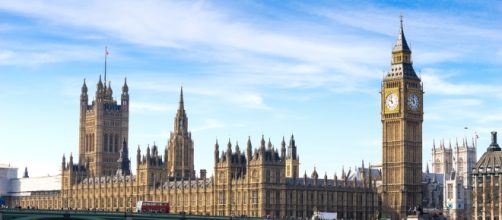The underlying threat overlooked by governments and corporations alike form the basis of our economy, environment, social mobility, and the capitalist system. Current models are based on short-term projections and analysis that predict growth opportunities for immediate returns from investments, but what about long-term Sustainability?
In recent years, more businesses have been switching to long-term strategies because fundamental understandings have diversified, the second laws of thermodynamics teach society that a system based on endless growth is unsustainable.
But many governments and corporations still base policy on growth forecasts.
Spring Budget 2017
Much was expected of Phillip Hammond’s first budget as Chancellor and he did not disappoint the critics. He broke the Conservative manifesto promise to not raise National Insurance (NI) contributions, by raising them for those who are self-employed and bring them in line with those who are employed. The issues of the budget itself comes forward in a series of corporate tax cuts along with tax cuts for the oil and gas industry.
Corporation’s will only pay 19% tax dropping to 17% by the next the next budget. This represents a 11-point drop from 2010. Under Labour corporation tax was at 28%. These breaks for the richest in society represent an economy based on endless growth and trickle-down economics with the UK government at the heart of it.
Many of the Conservative and some Labour MPs will benefit from these tax cuts.
Education is key to developing a sustainable economy in the long-term however, policies announced yesterday will see the return of the 11-plus. An outdated, cruel, and discredited method of deciding the value of a human based on economic strategies that rely on growth forecasts.
Development happens throughout our lives, with some showing potential at aged 11, but most are not.
Sustainability
The key to long-term economic success within business and government is to deliver a strategy that will see steady growth but create a base of sustainability for the future. Education holds a vital role in setting up future policy makers within these environments but with the continuing push towards grammar schools will only reduce productivity in the long-term.
Government should focus its policy on long-term sustainability solutions but problem is with the democratic system, because of the length of terms each government has. But this is a fundamental requirement of a democracy, meaning it should never be changed. There is a need for government to be brave and promote long-term sustainable solutions, unfortunately, the opposition, public, and a large proportion of the media will attack any government for little short-term success.
This furthers to underline the issues of education, and the need to promote long-term benefits within politics. The current feeling across the country is of political apathy. This is because of little support or education on local and central government from a young age. This creates an environment that stays regressive, a system that focus solely on the short-term benefits rather than long-term sustainability.

